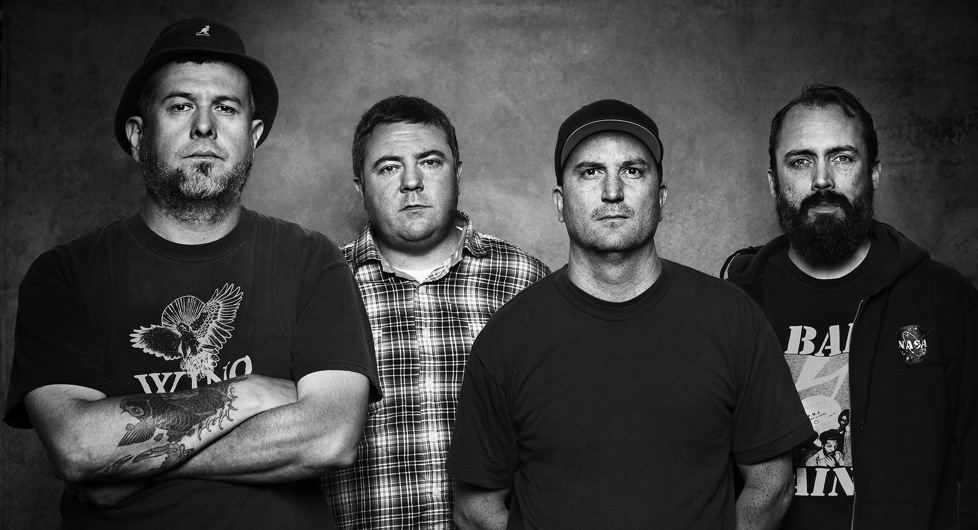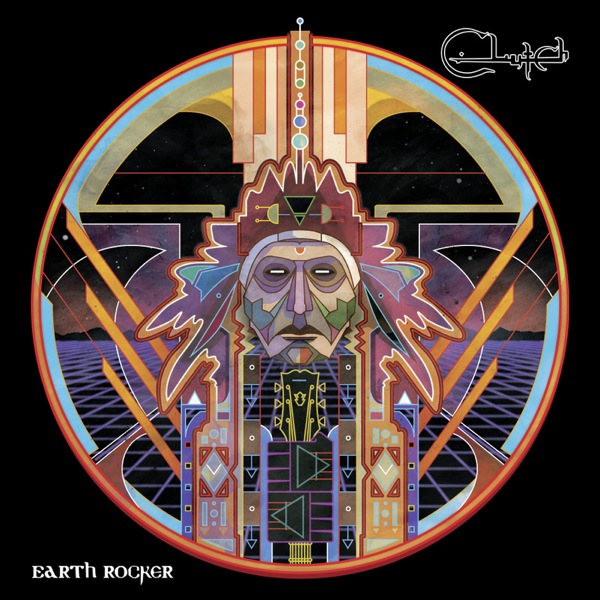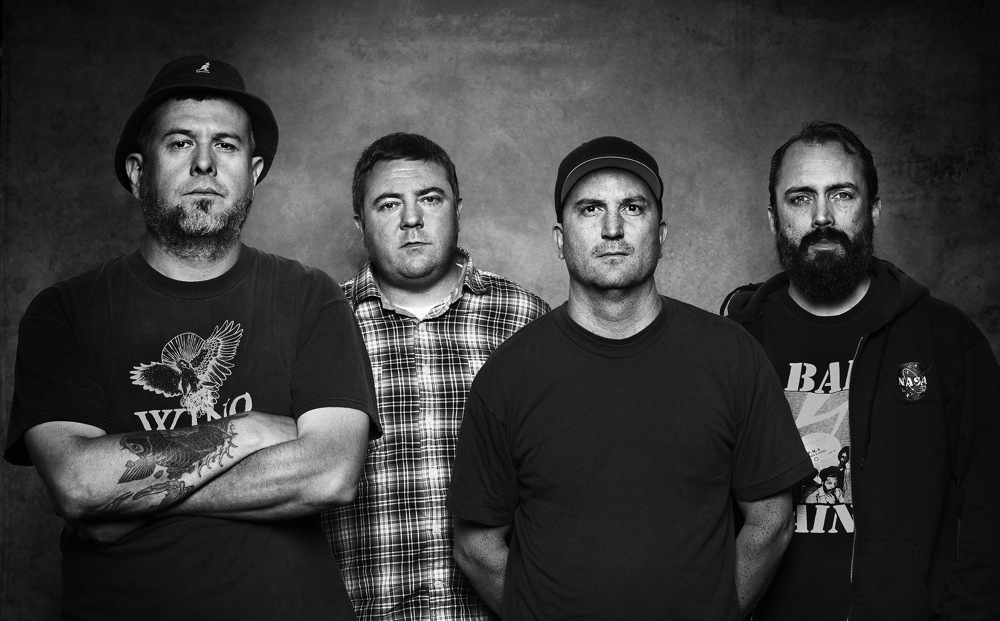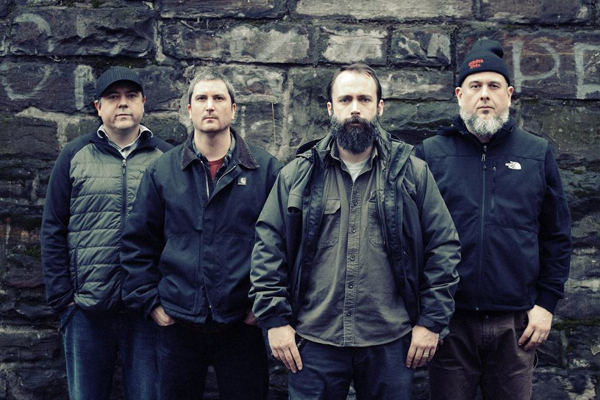Interview: Clutch Guitarist Tim Sult Talks New Album, ‘Earth Rocker’
All the latest guitar news, interviews, lessons, reviews, deals and more, direct to your inbox!
You are now subscribed
Your newsletter sign-up was successful

Maryland rockers Clutch released their long-awaited 10th studio album, Earth Rocker, on March 19.
The album, the followup to 2009's Strange Cousins From The West, was produced by Machine, who worked with the band on their 2004 offering, Blast Tyrant.
I recently spoke to Clutch guitarist Tim Sult about the making of Earth Rocker, songwriting, his guitar tone and more. Read the full interview below (and check out an Earth Rocker tune in the process). Visit Clutch at their official website and Facebook page.
GUITAR WORLD: It’s been four years since the last Clutch album, which represents the longest time between Clutch releases. Was there any special reason for the long break?
You know what, I don’t think we even realized it’s been so long between albums until we started doing interviews for this album. At least I didn’t, anyway. I guess between the time of Strange Cousins and Earth Rocker, we were touring a lot, and we also worked up a bunch of acoustic stuff as well. We went into the studio and recorded a few acoustic songs for the re-release of Blast Tyrant. So we were doing that as well, and I guess time just got away from us. We didn’t realize it has been this long.
Clutch often has been associated with various rock sub-genres, but Earth Rocker is more of a straight-up hard rock and roll album. Would you agree that’s a fitting description?
Yeah, that’s a good description. The album definitely showcases the hard rock side of Clutch, for sure. The focus is definitely always on writing good songs, but we took more of a hard rock approach this time. We’re pretty happy with the result.
All the latest guitar news, interviews, lessons, reviews, deals and more, direct to your inbox!
It’s also a great-sounding album in terms of the production and mix. Do you feel there's a naturally successful pairing of Machine [producer] with your heavier rock?
Yes, I think Machine’s production absolutely helps out that style of songwriting. That’s one of the reasons we decided to use him for this album; with him, the heavier, faster material really stands out, production-wise.
I read somewhere that the aim was to capture the live energy of the band onto the album. Do you think you’ve achieved that?
Yes, definitely. It captures the live energy of the band better than possibly any of our studio albums.
It’s also the kind of album where almost all the songs lend themselves to inclusion in your live sets. It has a natural flow to it, almost like a Clutch set list rather than a studio album.
I agree with you totally. Out of all the Clutch albums, this will be the easiest one to play live, and the most enjoyable. We’ll be adding a lot of the new songs to the set lists for sure, but we do switch up the set list every night so there could be some shows where you get no new material whatsoever, or something close to that. We switch it up so much that you never know what we’re going to play. Knowing us, we’ll just get sick of all the Earth Rocker songs within six months and start playing new songs, you never know [laughs].
How would you say your guitar tone has changed — or stayed the same — over the course of 10 Clutch albums?
My guitar tone is definitely a work in progress. This time, I was going for something a little more distorted and heavier than the tone on the last few albums, and I think I managed to accomplish that, at least in maybe some small way.
In terms of songwriting, is it more spontaneous and organic or does it take a long time to create?
For the writing process of Clutch, we just usually get in a room together and start playing, really. Sometimes one guy will have the riff or we’ll just start jamming and once we settle on something, we’ll keep it. At this point, we can all get in a room and start jamming, and we start writing something right there. For the past few albums, it’s definitely been a very collaborative process with all four of us working together.
Here's a very specific gear question. Damian Fanelli, the online managing editor at Guitar World, told me he bought a Gibson Custom Shop 1960 Les Paul in Falls Church, Virginia — and you were its previous owner. Why did you get rid of that guitar?
Sometimes I just freak out and get sick of guitars and sell them just to buy another one. Those Les Pauls are so expensive. I’d love to keep them all around, but if I want to buy one, I pretty much have to sell one before doing that. He must have bought it at Action Music in Virginia. That’s the one I played on the Bakerton Group's El Rojo album. Oh, you know what? Now I remember why I sold it. I used that guitar on the Live at The 9:30 Club DVD, and at the time I thought it sounded way too clean. I wanted to go for a heavier sound.
Damian used that guitar on stage with Peter Tork and Micky Dolenz of the Monkees earlier this month. So it went from Clutch to the Monkees in just over a year!
Interesting! The Monkees was probably the second concert I ever went to when I was a kid [laughs]. I’m glad it went to a good owner, because that’s a pretty good guitar, and sometimes I regret selling that one.
Andrew Bansal is a writer who has been running his own website, Metal Assault, since early 2010, and has been prolific in covering the hard rock and heavy metal scene by posting interviews, news, reviews and pictures on his website — with the help of a small group of people. Up till February 2012 he was based in Los Angeles. After that, he had to move to India, but is still carrying on his heavy metal endeavors with the same intensity.



